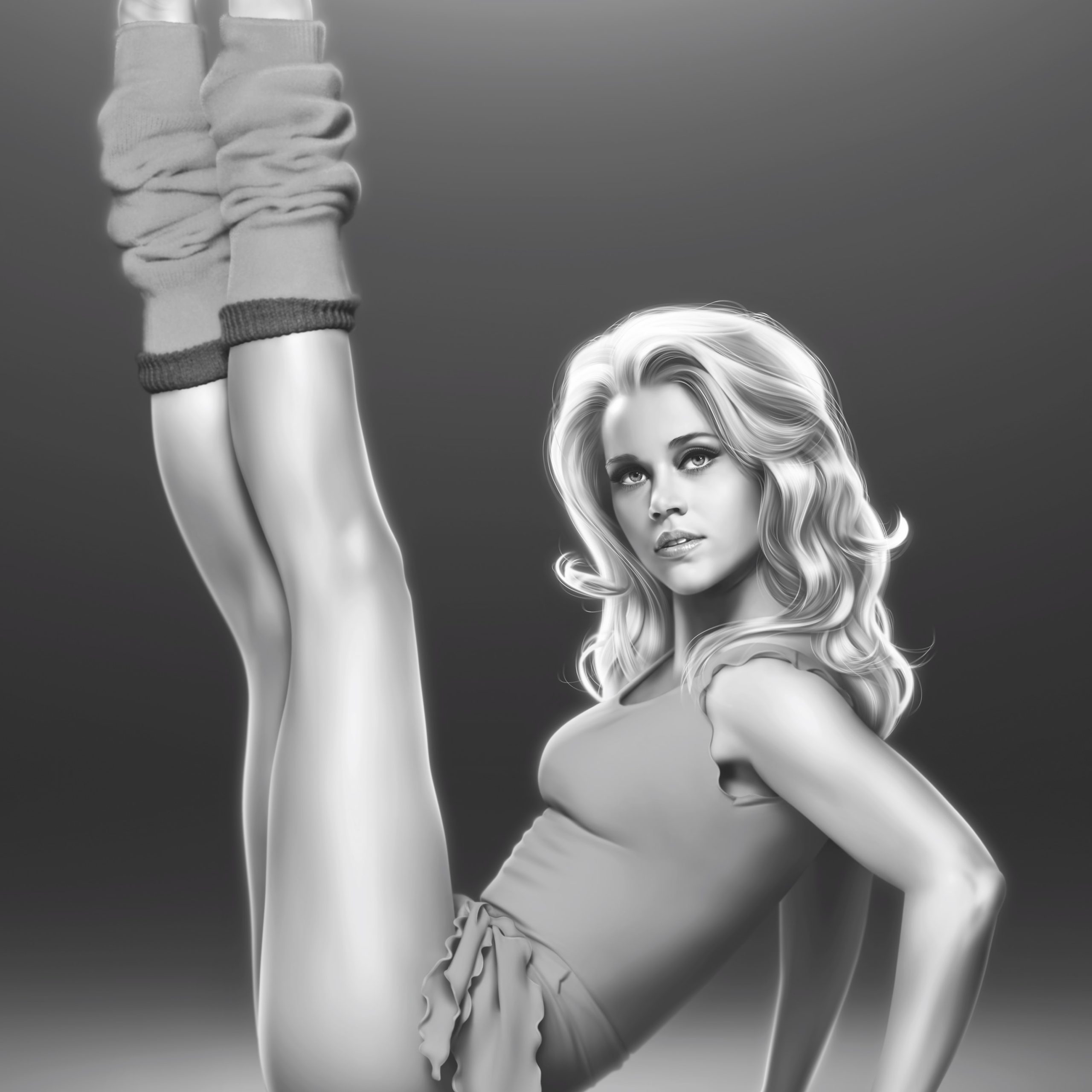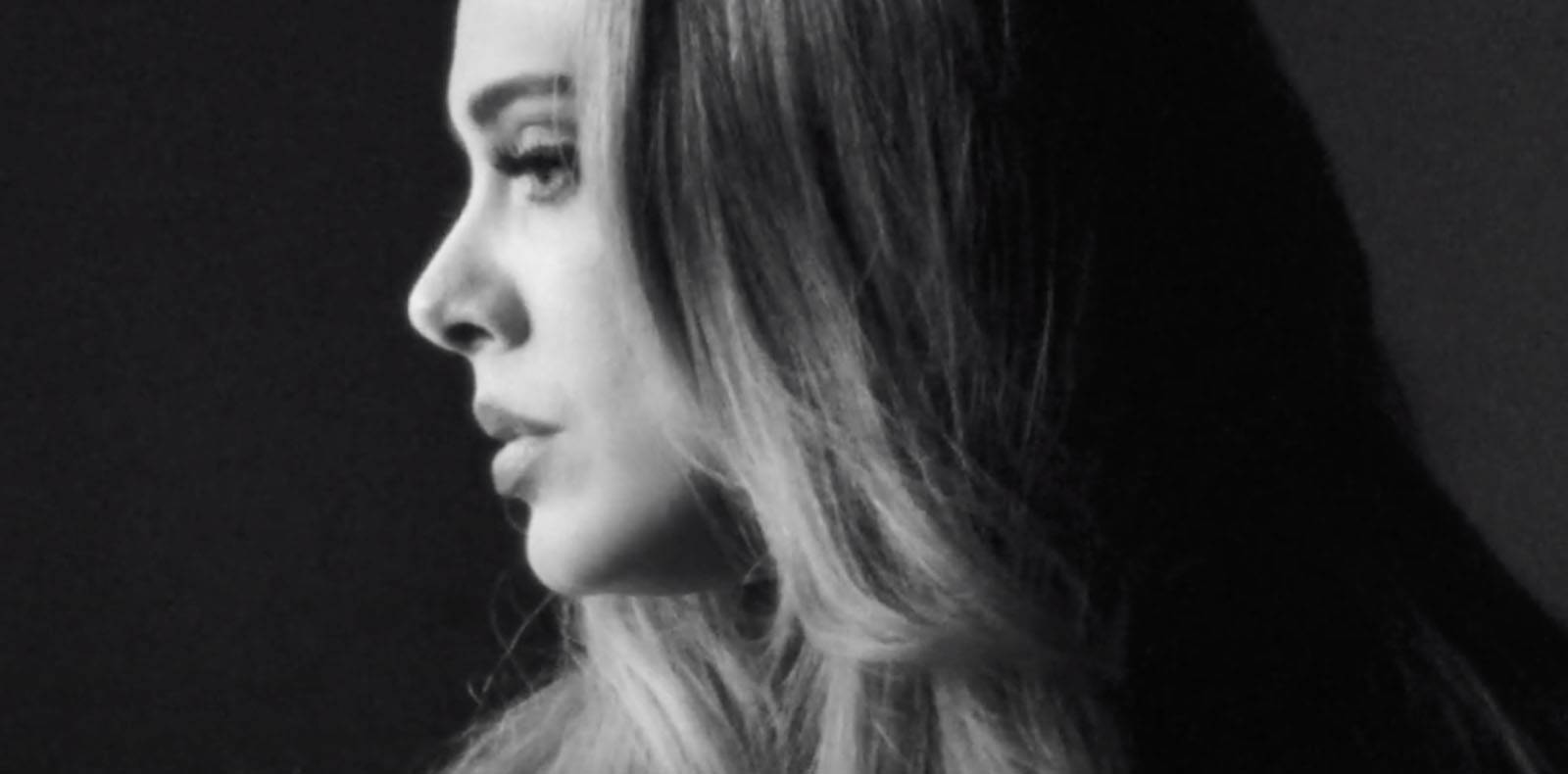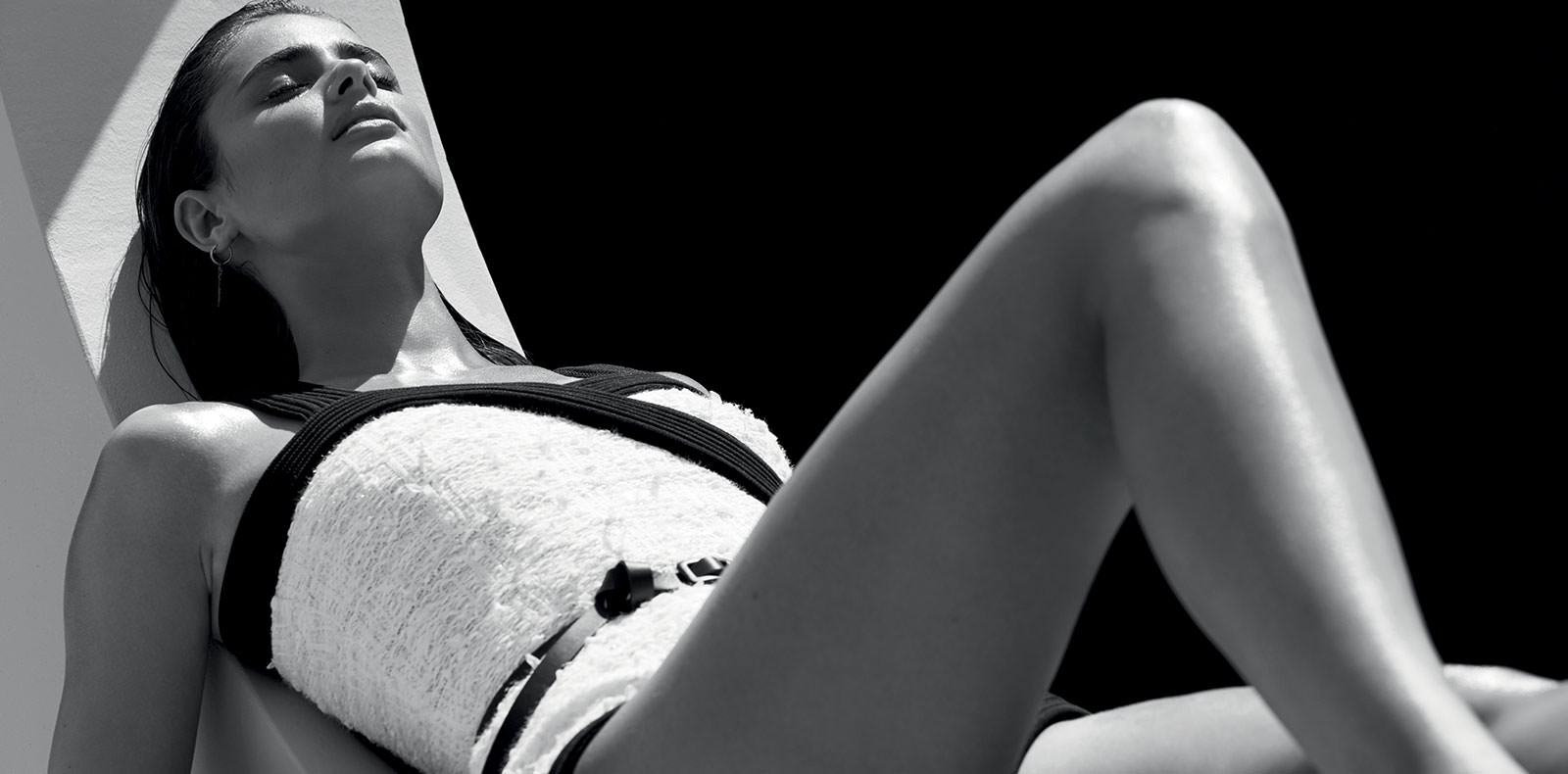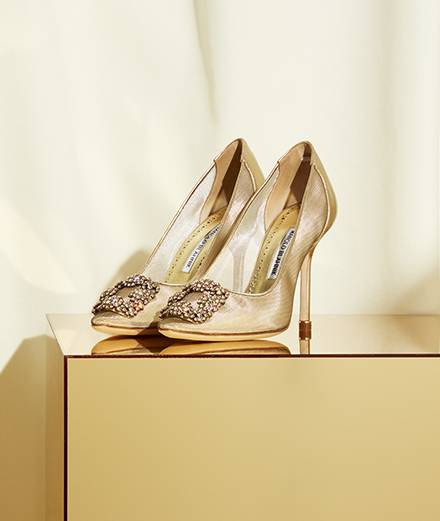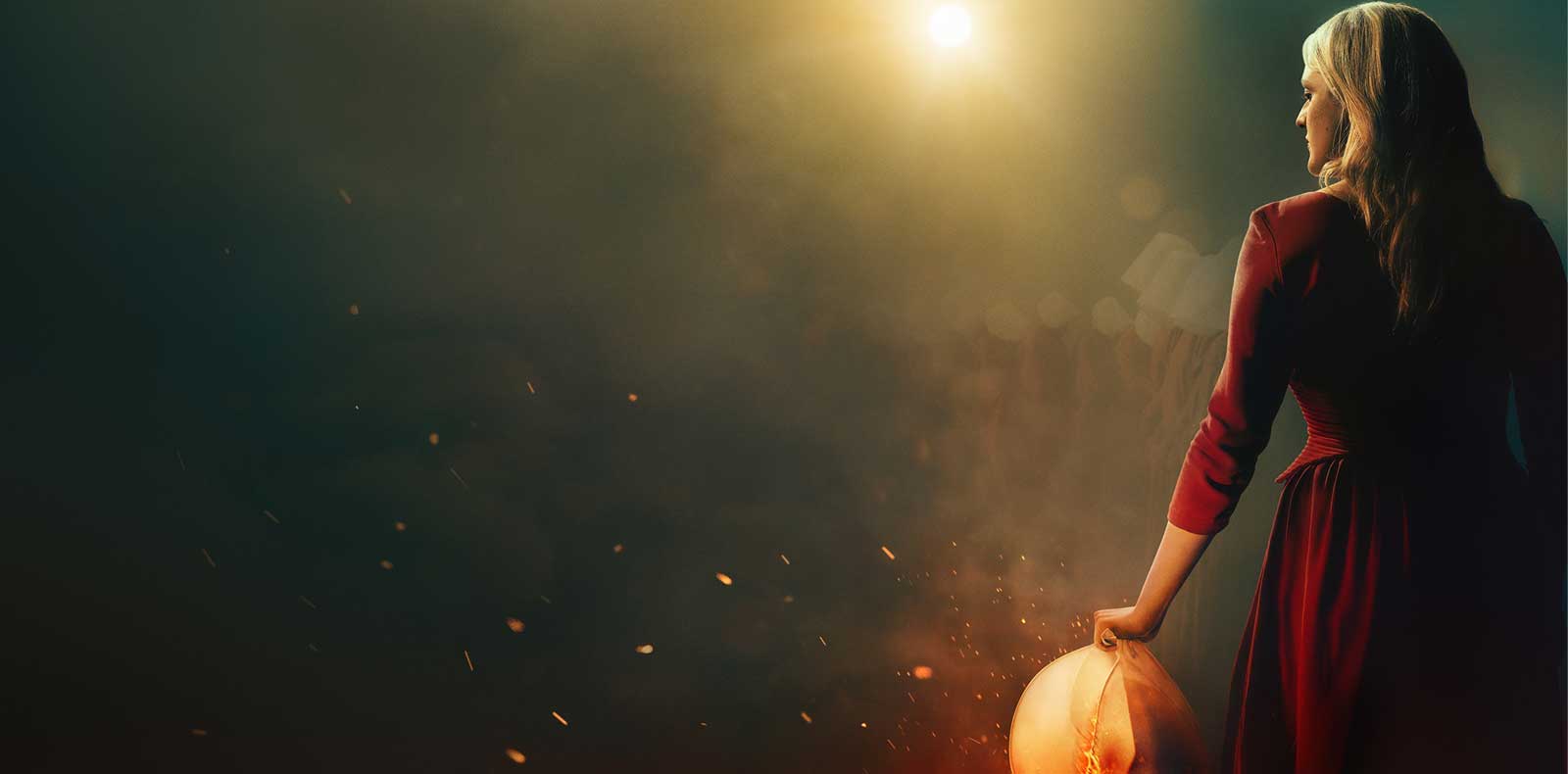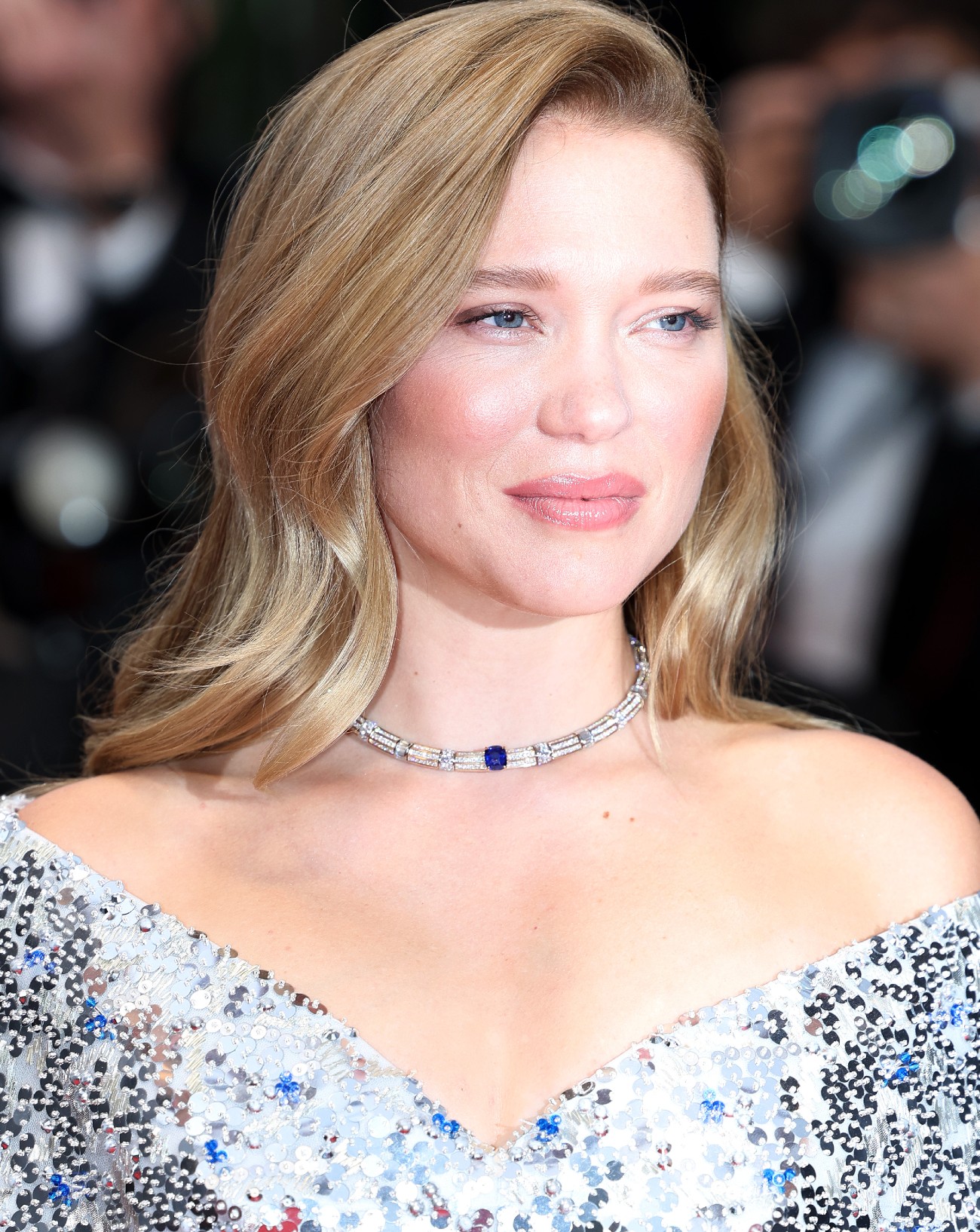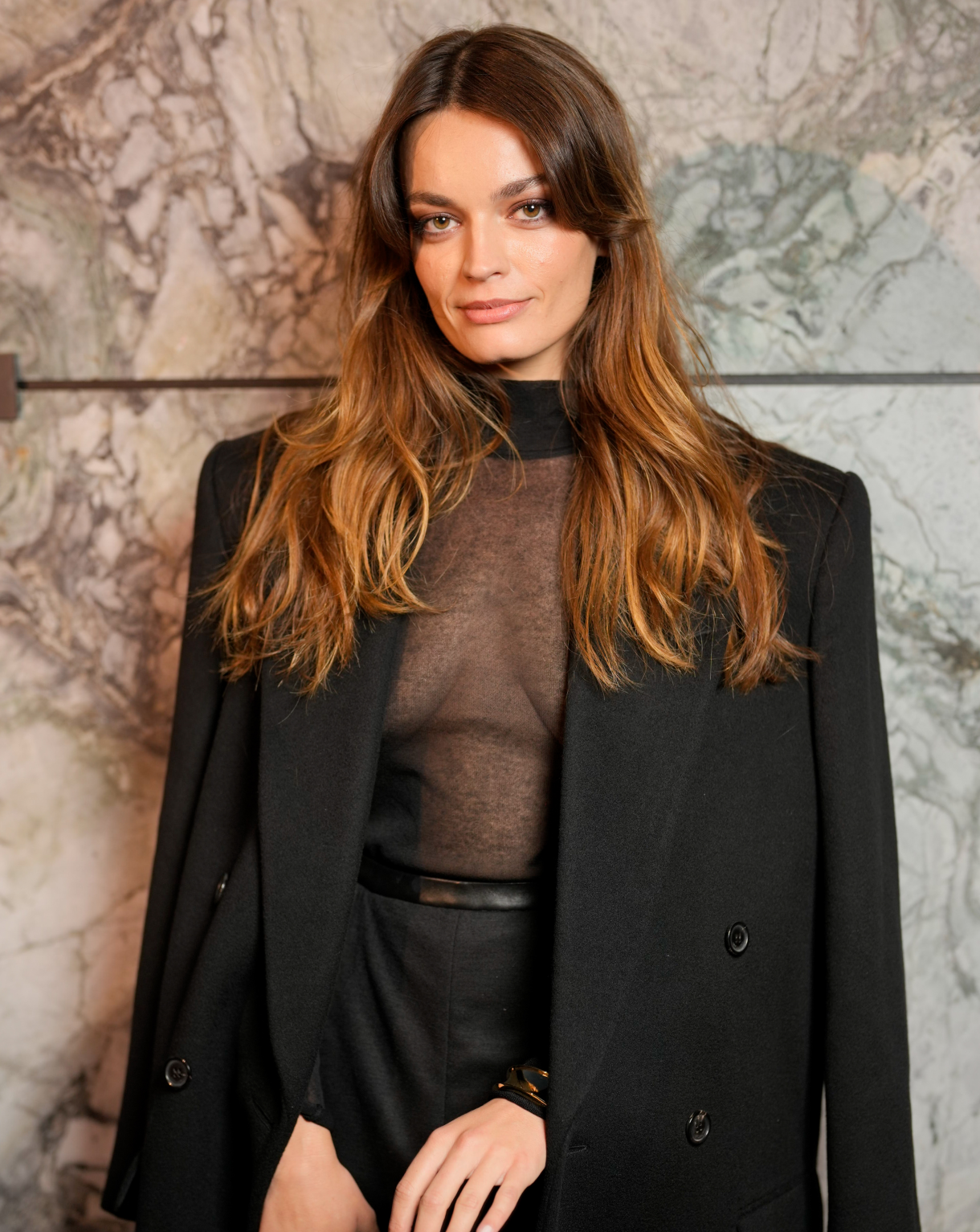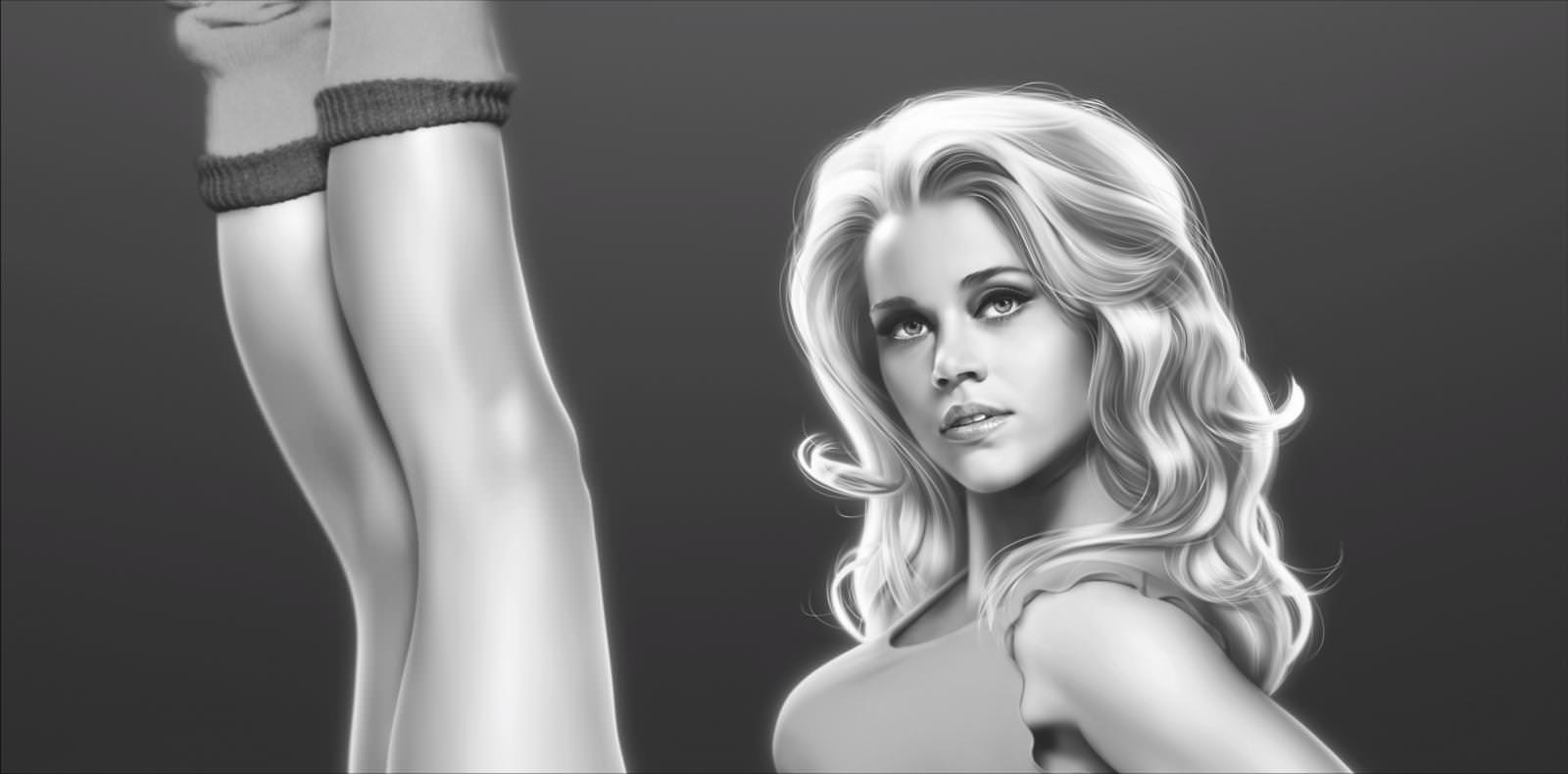
8
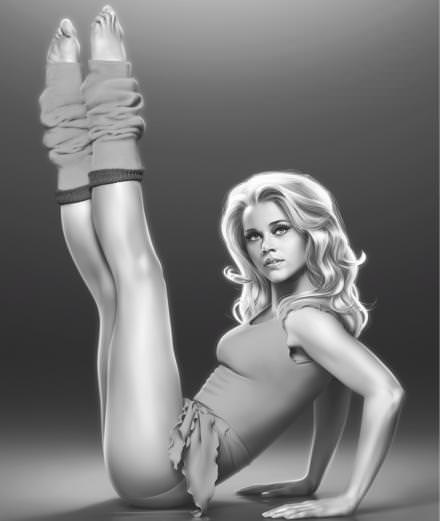
8
A conversation with Jane Fonda
Militant activist, campaigning actress, Jane Fonda doesn’t scare easily…
Interview by Olivier Joyard.
If cats have nine lives, what about Jane Fonda? The woman who’s journeyed through modern history, moving between contenents (America, Europe) and activities (militancy, movies, aerobics!) is today recognised as a global icon. You could choose just to remember her two Oscars (1972, 1979) or her rich and complex family history. But Lady Jane places much less importance on her accolades and career than on the time spent defending various causes. Her life is a perfectly coherent sum of many parts, a life free of remorse or regrets. She speaks just as comfortably about 1960s Saint-Tropez (experienced alongside Roger Vadim) as the anti-war meetings she attended in the 1970s. For several years Jane Fonda delivered her pacifist message in universities across America. Between each demonstration she made films with Sydney Pollack and Alan J. Pakula (her favourite), and dismissed warnings from the American political establishment, who thought she should keep her mouth shut.
Numéro:France has an important place in your life. It’s almost as though you were born half French…
Jane Fonda: A bit of my heart has been here in France ever since I first visited Nice at the beginning of the 1960s to make a film with Alain Delon (Les Félins), by René Clément. The filming then moved to Paris where I met Roger Vadim. We were together for eight years. I lived all over Paris, we had a daughter together and I often came back, even after him.
Who did you hang out with?
There was the Nouvelle Vague going on, an amazing effervescence, and then Saint-Tropez, the Riviera… The Arcachon Basin and the Trespasser’s Bay in Brittany have stayed with me most of all. Vadim was very good at holidays. He really loved nature, places that were off the beaten track. Saint-Tropez, but only in winter. We’d play chess. And then I was in Paris, pregnant, during May ‘68, which completely changed my life.
Had you been politically aware before then?
No, not really. One morning I heard Vadim cry out when he opened the newspaper: the American Congress had authorised the bombing of North Vietnam. Vadim was dumbfounded. In his eyes it just wasn’t possible that the Americans could win a war over there. Ten years later I realised that he was right. Mine was a gradual education. It was Simone Signoret who took me along to demonstrations with the likes of Simone de Beauvoir and Sartre. At the same time the American soldiers who were dodging the draft were hiding out in Paris. Calder, the sculptor, put them up at a farm he had somewhere. I’d visit them and what they said had a great influence on me. That was in 1968. With Vietnam, the May events and the fact I was pregnant, I said to myself: ‘I have to go back home and join the anti-Vietnam War movement.’
A somewhat radical choice!
I was bed-bound because of my pregnancy, so I spent hours in front of French TV. That was where I saw images of the Tet Offensive, the bombed hospitals… images that weren’t shown on American television. I felt betrayed by my country, I couldn’t stay in France, I had to go back and protest.
You played in a film by Jean-Luc Godard and Jean-PierreGorin,Tout va bien. Did you meet them during May’68?
No, I met them in the US. They just sent me the script over. At the time it wasn’t very easy to get hold of me. I was nomadic. I’d wander around with my backpack, sleeping on friends’ sofas. It was a bit unconventional, but quite wonderful.
What memories do you have of this collaboration with Godard?
We didn’t get on that well, which is pretty normal with Godard, I believe. You can’t ignore the influence he’s had on modern cinema though. I don’t regret it, but it wasn’t very fun. Having said that I’d like to see the film again today! Afterwards they [Godard and Gorin] made a short film addressed to me, Letter to Jane. A completely nonsensical thing!
How did you get on with American cinema when you went back to the States?
I’d never got off American cinema. I filmed American movies like Cat Ballou (Elliot Silverstein, 1965) and Barefoot in the Park (Gene Saks, 1967) during my ‘French period’. When I first got the script for They Shoot Horses, Don’t They (Sydney Pollack, 1969), it wasn’t that good, but Vadim pushed me into doing it. Once again, he was right!
You started working in Hollywood while the studio system was still intact, and thenyou were part of New Hollywood during the 1970s.
I had contracts: first with Columbia and then MGM Studios. It was a tight system under the grip of the unions. When I got to France and saw that you could shoot quickly, I started breathing again. On my return to the States I didn’t want to do Hollywood films anymore. But Coleman Young, a revolutionary black lawyer, who was mayor of Detroit, said to me, “The movement needs stars, you have to keep doing major movies.” My perspective had changed and my success was now of political importance.
May’68 and the civil rights movement awoke your political conscience. But where did the roots of this come from?
From my father, Henry. Twelve Angry Men, The Grapes of Wrath, The Ox-Bow Incident… He often chose films about justice. He didn’t talk about it, but he was touched by those roles more than others, and I could feel that. Whenever I’m asked where my activist side comes from, it’s clearly because I’m my father’s daughter. He wasn’t militant but his choice of films was significant.






